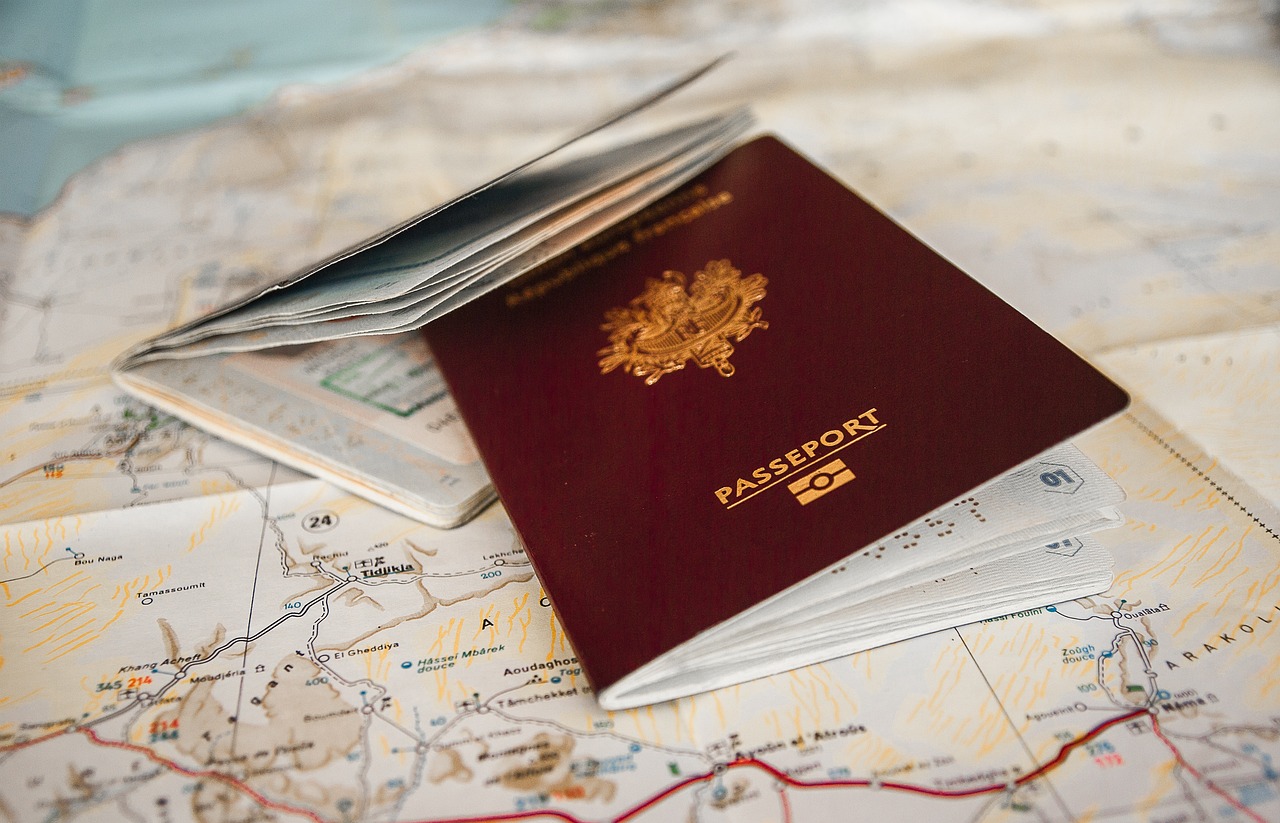
Overview of the Saudi Arabia e-Visa
What is a Saudi Arabia e-Visa?
The Saudi Arabia e-Visa is an electronic visa system designed to facilitate tourism in the Kingdom of Saudi Arabia. Introduced as part of the Vision 2030 initiative by Crown Prince Mohammed Bin Salman Al Saud, this e-Visa allows travelers to enter the country without the need for a physical visa stamped in their passport. The e-Visa is valid for 365 days and permits multiple entries, with each visit allowing a stay of up to 90 days. This initiative aims to streamline the visa application process, making it easier for visitors to experience the rich culture and attractions Saudi Arabia has to offer.
Eligibility for Saudi Arabia e-Visa
Eligibility for the Saudi Arabia e-Visa is extended to citizens from a wide range of countries. However, residents of the Gulf Cooperation Council (GCC) countries, including Bahrain, Kuwait, Oman, Qatar, and the United Arab Emirates, are exempt from needing a visa. For other nationalities, the eligibility criteria include having a valid passport, travel insurance, and proof of onward travel. The e-Visa system is especially favorable for tourists from the United States, United Kingdom, European Union, and Schengen area. Moroccan and Algerian citizens with residence permits for the US, UK, or EU, or a valid visa for these regions, are also eligible.
Validity and Entry Details
The Saudi Arabia e-Visa is valid for one year from the date of issue and allows for multiple entries into the country. Each entry permits a stay of up to 90 days, making it convenient for frequent travelers and tourists planning extended visits. It is essential to note that the e-Visa holder must enter through designated airports and seaports. These include King Fahd International Airport, King Abdulaziz International Airport, King Khalid International Airport, Prince Mohammed Bin Abdulaziz International Airport, and all Saudi Arabian seaports.
| Information | Description |
|---|---|
| e-Visa Validity | 365 days with multiple entries |
| Stay Duration | Up to 90 days per visit |
| Designated Ports of Entry | Specific airports and seaports |
| Eligibility | GCC residents exempt; others need valid passport, travel insurance |
| Vision 2030 | Initiative promoting international tourism |

Application Process
How to Apply for a Saudi Arabia e-Visa Online
Applying for a Saudi Arabia e-Visa is a straightforward process that can be completed online. Applicants need to visit the official Saudi Arabia Immigration Services website and fill out the e-Visa application form. The form requires personal information, passport details, and a valid email address. Once the form is completed, applicants must pay the visa fee and the government fee using a secure online payment method. After submission, the application is processed, and the e-Visa is sent to the applicant’s email.
Required Documents for e-Visa Application
To successfully apply for a Saudi Arabia e-Visa, applicants must provide several key documents. These include a valid passport, a recent passport-sized photo, travel insurance, and proof of onward travel. The passport must be valid for at least six months from the date of entry into Saudi Arabia. Additionally, applicants may need to provide a residence permit or visa valid for at least one year for the Schengen area, the United States, or the United Kingdom if they are Moroccan or Algerian citizens.
Paying the Visa Fee and Government Fee
When applying for a Saudi Arabia e-Visa, it is important to pay both the visa fee and the government fee. The payment can be made online through a secure payment gateway provided on the official e-Visa application website. It is crucial to have a valid credit or debit card for the payment process. Once the fees are paid, the application will be processed, and applicants can expect to receive their e-Visa via email.
Receiving and Printing the e-Visa
After the application is processed and approved, the Saudi Arabia e-Visa will be sent to the applicant’s email address. It is essential to print a copy of the e-Visa and carry it along with the passport when traveling to Saudi Arabia. The printed e-Visa must be presented at the designated port of entry to gain access to the country. Keeping a digital copy on a mobile device as a backup is also recommended.

Entry Requirements
Designated Airports and Seaports for Entry
Travelers with a Saudi Arabia e-Visa must enter the country through specific designated airports and seaports. The main airports include King Fahd International Airport, King Abdulaziz International Airport, King Khalid International Airport, and Prince Mohammed Bin Abdulaziz International Airport. Additionally, all Saudi Arabian seaports are designated entry points for e-Visa holders. It is important to adhere to these entry points to ensure a smooth and hassle-free entry into Saudi Arabia.
Travel Insurance and Medical Examination Requirements
Travel insurance is a mandatory requirement for all Saudi Arabia e-Visa applicants. The insurance must cover medical expenses, including those related to COVID-19. Applicants may also be required to undergo a medical examination as part of the e-Visa application process. This requirement was particularly emphasized during the COVID-19 pandemic to ensure the safety and health of both visitors and residents.
Required Vaccinations for Saudi Arabia
Several vaccinations are required for travelers entering Saudi Arabia. These include the Meningococcal meningitis vaccination, Poliomyelitis or yellow fever vaccination, and COVID-19 vaccination. It is important to have proof of these vaccinations when applying for the e-Visa and upon entry into Saudi Arabia. Ensuring that these vaccinations are up-to-date helps in maintaining public health and safety.

Conditions and Restrictions
Duration of Stay for e-Visa Holders
The duration of stay for e-Visa holders in Saudi Arabia is limited to 90 days per visit, with the e-Visa being valid for 365 days. This multiple-entry visa allows travelers to enter and exit the country multiple times within the validity period. It is essential to comply with the allowed duration of stay to avoid any legal issues. For longer stays or special cases, a traditional visa may be required.
Extension of e-Visa via Absher or Muqeem
If an e-Visa holder needs to extend their stay in Saudi Arabia, they can do so using the Absher mobile application or the Muqeem online portal. These platforms provide a convenient way to apply for an extension without needing to visit a government office in person. The extension process involves submitting the required documents and paying any applicable fees. It is recommended to apply for the extension well before the current visa expires to avoid any complications.
Conduct and Cultural Traditions
Visitors to Saudi Arabia must respect the local laws and cultural traditions. This includes dressing conservatively, especially in public places. Women are expected to wear a headscarf, and both men and women should avoid wearing revealing clothing. It is also important to be mindful of public conduct, particularly during religious events and observances. Drinking, smoking, or eating in public during Ramadan is strictly prohibited and can lead to penalties.
Travel During Ramadan
Traveling to Saudi Arabia during Ramadan requires additional consideration. During this holy month, Muslims fast from sunrise to sunset, and it is important for visitors to respect this practice. Non-Muslims should avoid eating, drinking, or smoking in public during fasting hours. Many businesses and services may operate on reduced hours, and travelers should plan accordingly to ensure a smooth visit.

Special Cases and Exemptions
Visa Exemptions for GCC Countries
Citizens of the Gulf Cooperation Council (GCC) countries, including Bahrain, Kuwait, Oman, Qatar, and the United Arab Emirates, are exempt from the visa requirement for Saudi Arabia. This exemption facilitates easier travel for residents of these neighboring countries. GCC citizens can enter Saudi Arabia using their national ID cards or passports without needing a visa. This policy promotes regional cooperation and tourism within the Gulf region.
Conditions for Moroccan and Algerian Citizens
Moroccan and Algerian citizens have specific conditions for applying for a Saudi Arabia e-Visa. They must hold a residence permit for the United States, United Kingdom, or European Union, or have a visa valid for at least one year for the Schengen area, the United States, or the United Kingdom. This requirement ensures that applicants have a stable residency status in these regions. Meeting these conditions allows Moroccan and Algerian citizens to benefit from the streamlined e-Visa application process.
Business Visa Holders
Foreign nationals with a Saudi Arabia business visa are permitted to stay in the country for 30 or 60 days, depending on the visa type. Business visas are intended for individuals traveling for work-related purposes, including meetings, conferences, and business negotiations. Business visa holders must adhere to the duration of stay specified in their visa. For longer stays, an extension or a different type of visa may be required.

Traveling for Umrah and Hajj
Umrah with an e-Visa
The Saudi Arabia e-Visa allows travelers to perform Umrah, a pilgrimage to the holy city of Mecca that can be undertaken at any time of the year. However, the e-Visa does not permit participation in the Hajj pilgrimage, which is a separate event with specific visa requirements. Umrah pilgrims must adhere to the same entry, health, and conduct regulations as other visitors. It is important to plan the pilgrimage in advance and ensure all requirements are met.
Restrictions During Hajj Season
During the Hajj season, the Saudi Arabian government imposes specific restrictions on travel for Umrah. The e-Visa cannot be used for Hajj, and separate Hajj visas are required for those wishing to participate in this annual pilgrimage. The Hajj season is a time of increased travel and religious observance, and the regulations are in place to manage the large influx of pilgrims. It is important to be aware of these restrictions and plan travel accordingly.
ZamZam Water Regulations
ZamZam water, considered holy by Muslims, can only be consumed during the Umrah or Hajj pilgrimage. It is forbidden to carry bottled ZamZam water back to your country of origin. This regulation ensures that the sacred water remains within the confines of its religious significance. Pilgrims should be mindful of this rule and consume ZamZam water responsibly during their pilgrimage.

Transit and Stopover Visas
96-Hour Transit Visa with Flynas and Saudia Airlines
Passengers traveling with Flynas and Saudia Airlines can benefit from a 96-hour transit visa if they have a connecting flight through Saudi Arabia. This transit visa allows travelers to leave the airport and explore the country for a short period. It provides a unique opportunity to experience Saudi culture and attractions during a layover. The application for this transit visa can be made through the respective airlines, making it a convenient option for travelers with long layovers.
Stopover in Saudi Arabia with a Connecting Flight
Travelers with a connecting flight through Saudi Arabia can take advantage of stopover options to explore the country. The Saudi Arabia e-Visa or the 96-hour transit visa allows for short stays during a layover. This opportunity is perfect for travelers who want to make the most of their journey by experiencing a new destination. It is important to plan the stopover in advance and ensure that all visa requirements are met to enjoy a hassle-free visit.

Government Initiatives and Vision 2030
Vision 2030 and the e-Visa System
The Saudi Arabia e-Visa system is a key component of the Vision 2030 initiative, which aims to modernize the country and promote international tourism. Introduced by Crown Prince Mohammed Bin Salman Al Saud, Vision 2030 focuses on diversifying the economy and reducing dependence on oil revenue. The e-Visa system simplifies the visa application process, making it more accessible for tourists worldwide. This initiative is part of a broader effort to open Saudi Arabia to global visitors and showcase its rich cultural heritage and natural beauty.
Role of Crown Prince Mohammed Bin Salman Al Saud
Crown Prince Mohammed Bin Salman Al Saud plays a pivotal role in the Vision 2030 initiative and the introduction of the e-Visa system. His vision for a modern and diversified Saudi Arabia includes promoting tourism, developing infrastructure, and enhancing the overall visitor experience. The Crown Prince’s leadership and commitment to Vision 2030 have been instrumental in transforming Saudi Arabia into a more welcoming destination for international travelers. His efforts have positioned the country as a key player in the global tourism market.
Promoting International Tourism
Promoting international tourism is a major goal of the Vision 2030 initiative. The introduction of the Saudi Arabia e-Visa is a significant step towards achieving this objective. By simplifying the visa application process and offering multiple entry options, Saudi Arabia aims to attract more tourists from around the world. The country offers a diverse range of attractions, from historical sites and cultural landmarks to natural wonders and modern cities. The focus on tourism is expected to boost the economy, create job opportunities, and foster cultural exchange.

Contact and Support
How to Contact Saudi Arabia Immigration Services
If you have any questions or need assistance with your Saudi Arabia e-Visa application, you can contact the Saudi Arabia Immigration Services. They provide support through their official website, where you can find contact details and frequently asked questions. For specific inquiries, there are dedicated phone numbers and email addresses available. It is advisable to reach out during business hours to ensure a prompt response. The immigration services team is available to assist with any concerns related to the e-Visa process.
Submitting Enquiries or Complaints
Submitting enquiries or complaints regarding the Saudi Arabia e-Visa process is straightforward. You can fill out an online form available on the official Immigration Services website. This form requires you to provide your personal information, e-Visa application details, and the nature of your enquiry or complaint. Once submitted, the relevant department will review your submission and respond accordingly. This process ensures that any issues are addressed promptly, and applicants have a clear channel for resolving their concerns.
Originally posted 2024-08-06 17:45:01.
